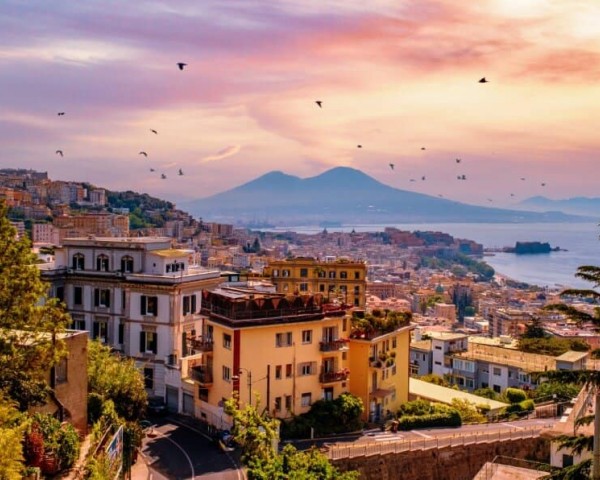Naples, Italy’s third-largest city, is experiencing a tourism boom, transforming its historic center and boosting the local economy. However, the rise in short-term rentals has led to a housing crisis, causing prices to soar and exacerbating social issues in one of the country’s most impoverished areas, according to residents and associations.
In just a few years, tourism in Naples has surged dramatically, with 13 million visitors in 2023 and 18 million expected by 2025. This influx has resulted in over 10,000 tourist apartments listed on the Airbnb platform, surpassing even Venice’s availability of short-term rentals.
The Airbnb database is updated every three months, showing an increase of 400 to 800 apartments available for rent. This surge in short-term rentals has been particularly noticeable after the COVID-19 pandemic.
According to experts, the municipal government has not established any limits on tourism, leading to speculation that has driven real estate prices to unprecedented heights and reduced the availability of long-term rentals.
Ten years ago, renting an apartment in the historic center cost between 550 and 600 euros, but today, those prices range from 1,200 to 1,400 euros—essentially doubling in a decade.
This situation significantly impacts long-term residents, especially young people struggling to afford rent or buy homes. As a result, many are forced to move to the outskirts or leave the central area, the heart of Naples, and one of the largest and most populated historic districts among major cities in Europe.
In parts of the old town that were once considered dangerous due to crime, tourists now stroll through streets lined with souvenir shops, restaurants, ice cream parlors, and pizzerias that showcase the renowned Neapolitan cuisine.
The mayor of Naples, Gaetano Manfredi, recognizes that the rise in tourist flats is creating challenges for housing accessibility. He advocates for a state law that would enable each municipality to address its specific needs, allowing for restrictions on short-term rentals.
Despite these challenges, he defends tourism as a significant economic growth and employment opportunity, noting how it has transformed Naples’s image. “The narrative about the city has become positive,” he emphasizes.
A few years ago, areas that now attract tourists were viewed as dangerous due to organized crime. “These were places where no one would go at certain times for fear of being robbed,” remarked Giuliano Granato, spokesman for Potere al Popolo, a leftist movement with a strong presence in Naples. He added that while tourism has improved the situation, it has also altered how criminal groups operate within the territory.












